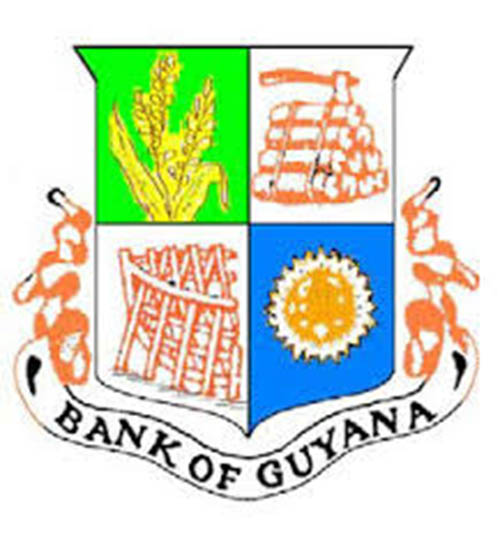As the country’s mid-year economic report is being prepared, preliminary data indicators show that the global COVID-19 pandemic has significantly impacted overall growth and further economic decline is projected, a source close to the process says.
“As we await the remainder of real sector data, projections are that the economy has further declined and the COVID-19 made matters worse,” the source told Stabroek News.
The current political impasse, including the failure to declare the results of the March 2 polls, has added to the economic stress and has led to this country operating on only a fraction of last year’s budget.
Although the Bank of Guyana (BoG) released its first quarter report, it only minimally reflected the direct effects of COVID-19 measures as emergency measures and the attendant restrictions were only instituted after the first death from the disease was reported on March 11.
That report said preliminary estimates for the first quarter suggest that the economy recorded a mixed performance in the major sectors at end March and that the global growth contractions would likely affect this country for the remainder of this year due to the lockdown of countries and the decrease in trade and other services.
“The performance of the Global economy is very important to Guyana’s new and emerging sector with respect to cash flows due to changes in prices and interest rates. Global growth contracted during the first quarter of 2020 as economic activities declined in the advanced, emerging and developing countries and Caribbean region (WEO – April, 2020). This subdued growth was as a result of the COVID-19 pandemic and subsequent lockdown of countries, disabling consumer spending, private investment, international trade and production activities,” the report stated.
The first quarter report said that in the agriculture sector, output of rice and other crops were higher while that of sugar and forestry were lower. Similarly, in the mining and quarrying sector, output of gold increased while bauxite and diamond output declined. The services and construction sectors experienced mixed performance, while the manufacturing sector registered increases in the production of paints, rum, non-alcoholic beverages, liquid pharmaceuticals and stockfeed.
Unemployment rates
It stated that COVID-19 measures were implemented and the resulting lockdown saw the loss of jobs, which will see unemployment rates rise for the rest of this year.
“These measures, which have limited business activities and mobility, are expected to result in a decline in economic growth, largely in the services sector. A number of businesses in the services sector, particularly wholesale and retail trade and transportation, will be affected and subsequently, unemployment levels will increase,” it said.
And with trade slowed, the balance of payments deficit is projected to expand on account of declining export earnings, remittances and foreign direct investment. Foreign exchange earnings will undoubtedly decrease, resulting in lower international reserves, the report noted.
“The contraction in business activities will significantly reduce Central Government’s revenues and this, coupled with the expenditure Government will have to spend to aid the fight and recovery of the coronavirus, will lead to a larger fiscal deficit. Consequently, debt levels will rise as the Government seeks to fill financing gaps,” it said.
Governor of the Bank of Guyana Dr. Gobind Ganga had last month said that due to the COVID-19 impact globally, especially on the oil market, Guyana’s projected 2020 growth rate has been revised from 87% to 57%, even as he had confirmed that that the non-oil sector was headed towards negative growth. Guyana’s economy grew by 4.7% last year, surpassing the 4.4% projection.
Ganga said that while the projected growth target has been significantly reduced, this country is still very grateful that it is projected to be the regional leader in terms of economic growth as a result of newly started oil production.
He, however, had lamented that other sectors would be negatively impacted.
“The non-oil growth we are now looking at negative five to seven per cent. It could even be more if this [COVID-19] is prolonged, because these major sectors would have been hit, such as the services sector, education, administration, transport… likewise wholesale and retail, manufacturing and agriculture,” he had said.
He added that without oil, this country would not have been coming out looking “glorious” and would have suffered the same fate as its regional sister countries which have taken an economic battering due to COVID-19.
Pointing to projections in the half-year report, the source who spoke with this newspaper said that every sector, except for oil and gas and gold, has been severely impacted.
The private sector has been especially hard hit, with wholesale and retail businesses taking a battering because of COVID-19 restrictions and a number were forced to lay off staff.
“We should not expect anything too bright because all the traditional sectors… except gold to some degree, have been harshly impacted economically. Businesses and restaurants and such could not open and even the girls selling in Robb and Regent stores had to go home. So money was not circulating [and] people just did not have the money to spend,” the source said.
“You have to look at the balance of payments too because if people can’t afford to buy and trade it means that imports and exports is affected. We all knows what happens. Every sector was affected, every sector. You look at health too and that is another matter because if you can’t feed yourself properly then the people will get sick. Private hospitals have reported losses too. People were not going because they didn’t have money and they also were not going to do surgeries. People were only going in the case of emergencies and not for check-ups or things like that…our situation for this year doesn’t look good” the source added.






